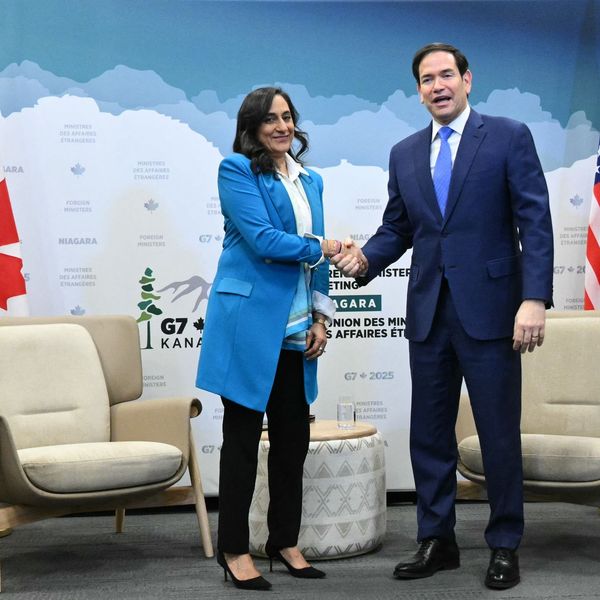As the U.S. and its allies weigh the possibility of military intervention in Syria over the use of chemical weapons, new reporting by Foreign Policy reveals details of how the U.S. helped Iraq launch multiple chemical weapons attacks during the Iran-Iraq war.
The magazine reports that formerly unnoticed documents in the National Archives in addition to information obtained in interviews with former intelligence officials "are tantamount to an official American admission of complicity in some of the most gruesome chemical weapons attacks ever launched."
On Monday, Secretary of State John Kerry railed against chemical weapons he said were used in Syria. From his remarks:
What we saw in Syria last week should shock the conscience of the world. It defies any code of morality. Let me be clear. The indiscriminate slaughter of civilians, the killing of women and children and innocent bystanders by chemical weapons is a moral obscenity. By any standard, it is inexcusable. And despite the excuses and equivocations that some have manufactured, it is undeniable.
The meaning of this attack goes beyond the conflict on Syria itself. And that conflict has already brought so much terrible suffering. This is about the large-scale indiscriminate use of weapons that the civilized world long ago decided must never be used at all, a conviction shared even by countries that agree on little else.
There is a clear reason that the world has banned entirely the use of chemical weapons. There is a reason the international community has set a clear standard and why many countries have taken major steps to eradicate these weapons. There is a reason why President Obama has made it such a priority to stop the proliferation of these weapons, and lock them down where they do exist. There is a reason why President Obama has made clear to the Assad regime that this international norm cannot be violated without consequences. And there is a reason why no matter what you believe about Syria, all peoples and all nations who believe in the cause of our common humanity must stand up to assure that there is accountability for the use of chemical weapons so that it never happens again.
Twenty-five years ago, however, the U.S. was not calling for "accountability for the use of chemical weapons."
Foreign Policy magazine reported on Monday:
In 1988, during the waning days of Iraq's war with Iran, the United States learned through satellite imagery that Iran was about to gain a major strategic advantage by exploiting a hole in Iraqi defenses. U.S. intelligence officials conveyed the location of the Iranian troops to Iraq, fully aware that Hussein's military would attack with chemical weapons, including sarin, a lethal nerve agent.
Even years before the U.S. provided Iraq with intelligence it used to carry out chemical attacks, friend of President Ronald Reagan and then Director of Central Intelligence William J. Casey and other intelligence officials were repeatedly informed of Iraq's use of chemical weapons in attacks, including strikes carried out by Saddam on Iraqis, the magazine reported.
"The Iraqis never told us that they intended to use nerve gas. They didn't have to. We already knew," said retired Air Force colonel Rick Francona, a military attache in Baghdad during the 1988 attacks.
In a 1987 report entitled "At the Gates of Basrah," Reagan wrote in the margins, "An Iranian victory is unacceptable," Foreign Policy reports. Their reporting continues:
In contrast to today's wrenching debate over whether the United States should intervene to stop alleged chemical weapons attacks by the Syrian government, the United States applied a cold calculus three decades ago to Hussein's widespread use of chemical weapons against his enemies and his own people. The Reagan administration decided that it was better to let the attacks continue if they might turn the tide of the war. And even if they were discovered, the CIA wagered that international outrage and condemnation would be muted.
____________________


